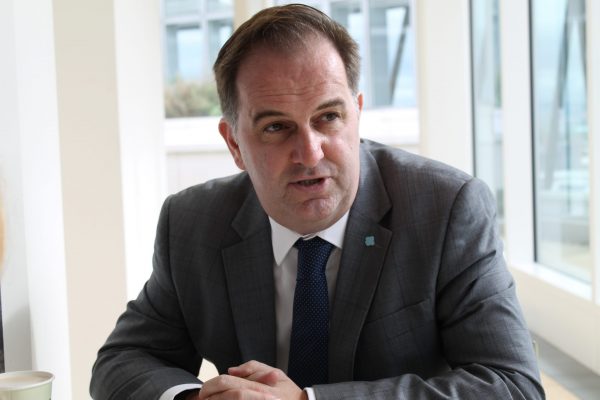The Co-operative Group has published a statement showing how it has been working to tackle modern slavery and human trafficking across its supply chains.
The Group’s food ethical trading monitoring programme covers 1,773 sites across six continents in 69 countries. Around half (51% by turnover) of the goods sold in Co-op Food stores are own-brand products. The retailer also sells a wide range of third-party branded products, as well as a variety of products and services through other parts of its business.
The report reveals that suppliers are expected to share the Group’s commitments to fair treatment and respect for human rights. These are set out in the Group’s policies including its Ethical Trade and Human Rights Policy Position Statement, its Sound Sourcing Code of Conduct, its Sustainable Procurement and Supplier Policy, and its Human Rights and Trade Policy.
The Group was one of the first organisations to join the Ethical Trading Initiative (ETI), an alliance of companies, campaigning groups and trade unions to improve labour standards. Co-op brand suppliers in the food business have been required to join the Supplier Ethical Data Exchange (Sedex) and complete self-assessment questionnaires on labour and environmental standards. When issues are identified, the retailer works with suppliers to help them meet its standards.
Related: Co-op Way report highlights the Group’s social responsibility
Along with City Hearts, the Co-op has worked to provide paid work placements for victims of modern slavery and will be rolling out Project Bright Future in 2017. The initiative will see the group develop new partnerships with charities who are experienced in supporting survivors of modern slavery, and create 30 new work placement opportunities across its businesses.
This year, the Co-op is continuing the campaign to engage key influencers, policy makers and other businesses to adopt the Bright Future model. Furthermore, the retailer will work with a minimum of five of its suppliers to help them support victims through work placements in their own business.
Co-op Food is also a founder sponsor of UK stakeholder alliance Stronger Together, which works to reduce forced labour and human trafficking by providing guidance, tools and training for suppliers.
The retailer is looking to set up a new Ethical Trade and Human Rights Practitioners’ Group for colleagues from across the business to help put in place consistent processes to monitor supply chain labour standards. The Co-op will also be carrying out training for HR colleagues to identify potential modern slavery cases.
Since 2014, the mutual has been running a Co-op Food Ethical Trade annual conference to raise awareness on how to tackle modern slavery.

“As a co-op, we need to do more to tackle the threat of modern-day slavery. If a co-op is about anything, it’s about people coming together. Some people are victims of modern day slavery, and we want to help them,” said Group campaigns director, Paul Gerrard.
He adds that the campaign is not just about the “corporate voice” – the Group is aiming to get its 4.4m members involved in it to change society for the better.
The Project Bright Future campaign has been welcomed by independent anti-slavery commissioner Kevin Hyland OBE.
He said: “We need more companies to respond to modern slavery like the Co-op. This pioneering approach to victim support will provide long-term care, boost opportunities for the future and, most importantly of all, prevent the risk of re-trafficking.”